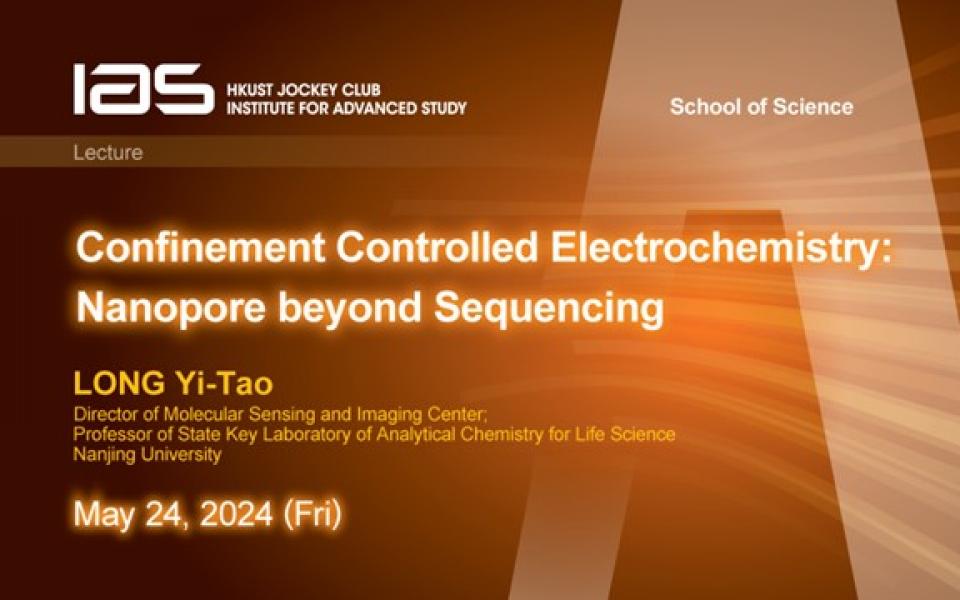IAS / School of Science Joint Lecture - Confinement Controlled Electrochemistry: Nanopore beyond Sequencing
Abstract
Nanopore electrochemistry refers to the promising measurement science based on elaborate pore structures, which offers a well-defined geometric confined space to adopt and characterize single entities by electrochemical technology.1-3 The electrochemical confined effect within the nanopore displays the incredible ability to achieve single entity discrimination by focusing energy (e.g. electrochemical, light energies and et al.) into small areas, converting the intrinsic properties of single entities into visible electrochemical read-outs with ultra-high temporal-spatial resolution.4 Furthermore, the excellent resolution of confined nanopore technology also permits the possibility to resolve the transient signals for further revealing the information of single biomolecules dynamics. The chemical controlled confinement inside nanopore provides the advanced electrochemically confined effects to convert the transient single molecule difference into the enhancing signal with high temporal-spatial resolution. In the speaker’s research group, the nanopore electrochemistry has been further applied into disease diagnostics by identifying rare sub-populations, DNA/protein sensing by reading the sequential differences and uncovering the fundamental chemical reactions pathways by revealing the hidden intermediates.
References:
1. J. Jiang, M.-Y. Li, X.-Y. Wu, Y.-L. Ying, H.-X. Han, Y.-T. Long, Nat. Chem. 2023, 15, 578-586.
2. Y.-L. Ying, Z.-L. Hu, S. Zhang, Y. Qing, A. Fragasso, G. Maglia, A. Meller, H. Bayley, C. Dekker, Y.-T. Long, Nat. Nanotechnol. 2022, 17, 1136-1146.
3. H.-Y. Wang, Y.-L. Ying, Y. Li , Y.-T. Long, Chem.-Asian J., 2010, 5, 1952-1961.
4. Y.-L. Ying, Y.-T. Long, J. Am. Chem. Soc. 2019, 141, 15720-15729.
About the Speaker
Prof. LONG Yi-Tao obtained his MS and PhD, both in Bioelectrochemistry, at Nanjing University in 1996 and 1998 respectively. He then pursued his postdoctoral studies at Heidelberg University in 1999-2001, the University of Saskatchewan in 2001-2005 and the University of California, Berkeley in 2006-2007. He joined the East China University of Science and Technology in 2007 as a Distinguished Professor at the Key Laboratory of Advanced Materials. In 2019, he returned to Nanjing University and is currently the Director of the Molecular Sensing and Imaging Center and the Professor of the State Key Laboratory of Analytical Chemistry for Life Science in the School of Chemistry and Chemical Engineering.
Prof. Long’s research interests include single molecule interface, electrochemically nanoconfined space, nanopore single molecule analysis, nanoelectrochemistry and in-situ spectroelectrochemistry. He serves as the Associate Editor of Chemical Science and the Editorial Board Member for Chemical Reviews. He is the recipient of the 2023 Electrochemistry Group Faraday Medal Award by the Royal Society of Chemistry. He is also the Fellow of the Chinese Society of Chemistry, the International Society of Electrochemistry, and the Royal Society of Chemistry.
For Attendees' Attention
Seating is on a first come, first served basis.
